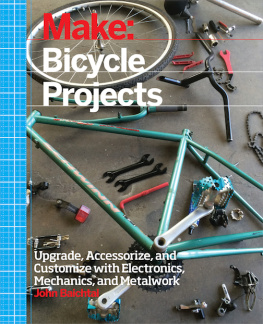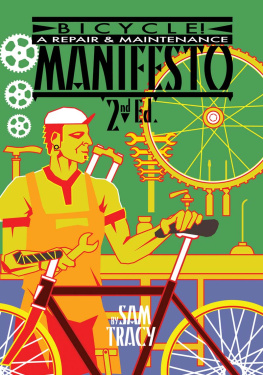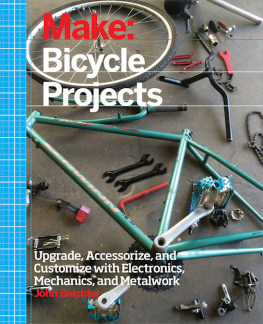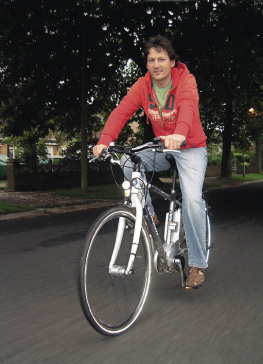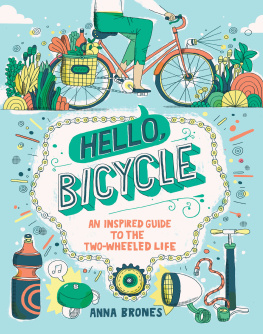BELLA BATHURST
The Bicycle Book
I want to ride my bicycle
I want to ride my bike
I want to ride my bicycle
I want to ride it where I like
QUEEN, Bicycle Race

For Fog
Beloved friend, teacher and fellow traveller,
19972010
Contents
The gross and net result of it is that people who spent most of their natural lives riding iron bicycles over the rocky roadsteads of this parish get their personalities mixed up with the personalities of their bicycle as a result of the interchanging of the atoms of each of them you would be surprised at the number of people in these parts who nearly are half people and half bicycles.
FLANN OBRIEN,
THE THIRD POLICEMAN
A bicycle undoubtedly has its downsides. It wont shelter you from the elements, or protect you from the fury of your fellow traveller. It lacks the romance of a sailboat or the simplicity of your own two feet. It will not give you the same sensation that sitting in 180,000-worth of over-charged horsepower does. It is miserable in the wet. No other form of transport ever takes it seriously. It is sliced up by cabs and menaced by buses. It is loathed by motorists and loved by the sort of politicians who would never dream of actually using it. It cant transport you from one end of the world to the other in time for Christmas. It doesnt have a particularly distinguished industrial history. It gets stolen, on average, every minute and a half. It delivers you at the end of your journey covered in a light film of sweat and toxic diesel particulates. It requires a lot of silly clothing. And, of course, it is occasionally fatal.
And yet cycling obsesses people. They take it up for practical reasons health, economy, twelve points on their driving licence and before they know it theyre gleaming with zeal and talking slightly too fast about fixies and resting BPMs. Things that they hadnt thought about since they were children start to preoccupy them the stuff of bikes, the speed of them, their grace or style or character. It doesnt take long before the daily commute to work becomes a journey to be looked forward to, an adventure instead of an ordeal. There are conversations with colleagues about bikes and the experience of cycling; new connections are made. On the road, they start silently checking out fellow converts. Looking for short cuts and alternative routes, they ride past bits of the city intriguing, come-hither bits they never knew existed. In their houses, items of bike kit start to multiply. Tyres and lights now take up as much space as hats and coats. They persuade themselves that lugging a muddy vintage steel-framed roadster up three flights of stairs at night is a reasonable way to get fit. Cycling starts to become as much a way of life and a philosophy as it does a form of transport. It spreads from work to weekends to holidays. They nominate themselves for sponsored rides and charity marathons. They stop thinking in miles and start thinking in kilometres. Almost by mistake, they find themselves in possession of a whole fleet of bikes: one for work, one for speed, one for the wet, one for annoying other people who know about bikes. They realise that one of the major advantages to cycling is the ability more than that, the need to consume their own bodyweight in spag bol and chocolate cake every day. Instead of road-tripping it round America as in the old days, family holidays are now spent hurtling through the Austrian Tyrol like two-wheeled von Trapps. They arrive at work early every day now, radiant with sweat and self-satisfaction. At home, they talk about getting rid of the car. In the evenings, they admire their newly altered profile in the mirror; the helmet hair, the buns of steel, the bloody knees. After a while they find themselves making unexpected judgement calls can one cycle elegantly in a pencil skirt, what is the optimum number of children per bicycle, how wet is too wet, is Kent too far, perhaps an tape might be nice. They discover that the thing about cycling isnt that its healthy, or environmentally friendly, or fast, or convenient, or politically correct. The thing about it is that its fun.
Part of that is the straightforward childlike joy in riding a bike, the urge to yell, Whheeee! on the way downhill. Theres a huge pleasure in going places cars cant go, in dodging and weaving, in a bikes simple agility. It makes previously unknown districts more accessible and familiar ones more difficult. It reinvents familiar geography, opens up towpaths or riverbanks or favoured rat runs across town. It offers the little tremor of happiness from bending urban by-laws back to suit the individual, and the constant delight in going straight to the front of the queue. It allows one to feel smooth and charged and graceful in a world full of blocks and obstructions. It has the peculiar attraction of being healthy, dirty and risky all at once. It offers the interesting discovery that getting to and from work need not necessarily mean the abandonment of sanity. It can be companionable or solitary, competitive or amicable. And, like the horse or the sailboat, it feels somehow as if its exactly the right pace for a human to travel.
And so the bicycle old, and cheap, and slightly comic has become the twenty-first centurys great transport success story. Since the millennium, its use in Britain has doubled and then doubled again. Thousands now cycle to work, and more take it up every day. It has allowed the reinvention of the British landscape, opening up miles of Forestry Commission land to mountain bikers, and in doing so has given us back both the countryside and our sense of ourselves. Its introduced thousands of people to racing and to the world of European pro-touring. Its offered those of middle-aged mind and limb a chance to see themselves renewed. It has connected people through events and races and just hanging out. It has become the fastest and most reliable form of transport for people all over the country. In trial after trial, it is the bike which reaches its urban destination faster than the car, the bus, the tube or the pedestrian. It represents the power of self-reliance and the triumph of straightforwardness. Cycling has recycled itself. It is an ancient idea, and its time has finally come.
I started writing this book because I wanted to read something good about cycling and bikes, and there didnt seem to be that much around. There were books, certainly, but none of them were written for people like me. There were route guides or sports science manuals or conspiracy theorists poring over Lance Armstrongs doping record or biographies of individual heroes. There were instructions on mending a puncture at 10,000ft or nerdy accounts of club cycling. There were breathless records of difficult trips and books hung just on the cycling-related pun in the title. But there wasnt anything for the sort of cyclist who liked cycling, and reading, and stories, and who had long ago given up any desire to experiment with exogenous EPO.
This, then, is not designed to tell the reader how to differentiate between brands of derailleur or explain why riding a bicycle is good for your health. There is plenty missing. Ive left out most of the political and environmental debate (provision of facilities, zero emissions etc.) because it is either obvious or it is already well served by innumerable blogs and forums. I havent included anything on track cycling on the grounds that if you need a velodrome to do it then it is out of most peoples reach. Theres nothing on folding bikes, Moultons or recumbents because they look ridiculous and cant corner. I cannot tell you about your VO2 max or how to lace a wheel. I dont know how to stop your bike getting nicked and or how you become an Iron Man. Ive picked and chosen quite shamelessly from all the available information on the basis of what I felt was interesting and useful. Because almost all cyclists feel a strong sense of ownership of both the bicycle and the experience of cycling, there will almost inevitably be some I cant satisfy, and who will wish Id included less of some stuff and more of another. That, Im afraid, is an occupational hazard of writing about a subject about which so many people feel so passionately. The other occupational hazard, common to all non-fiction, is discovering that half the best stories come to you after the book is published. People write in, talk to you at book events, offer fabulous heaps of gold-mine material. Sometimes you get to include some of that material in future editions. Even if you dont, theres always the pleasure in knowing that the subject has inspired readers to dust off their own untold stories.
Next page
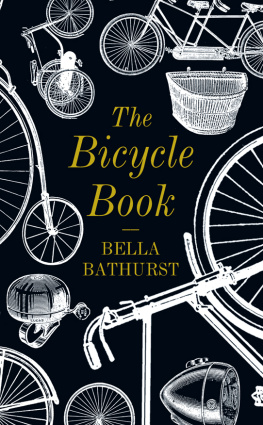
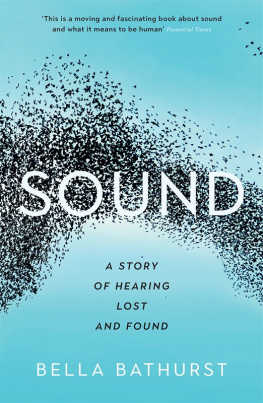


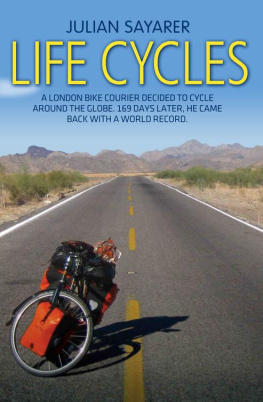
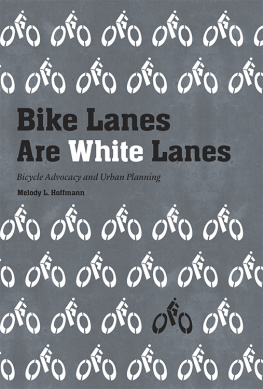
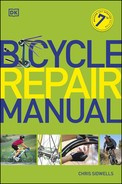
![Shanks - Essential bicycle maintenance & repair: [step-by-step instructions to maintain and repair your road bike]](/uploads/posts/book/235248/thumbs/shanks-essential-bicycle-maintenance-repair.jpg)
